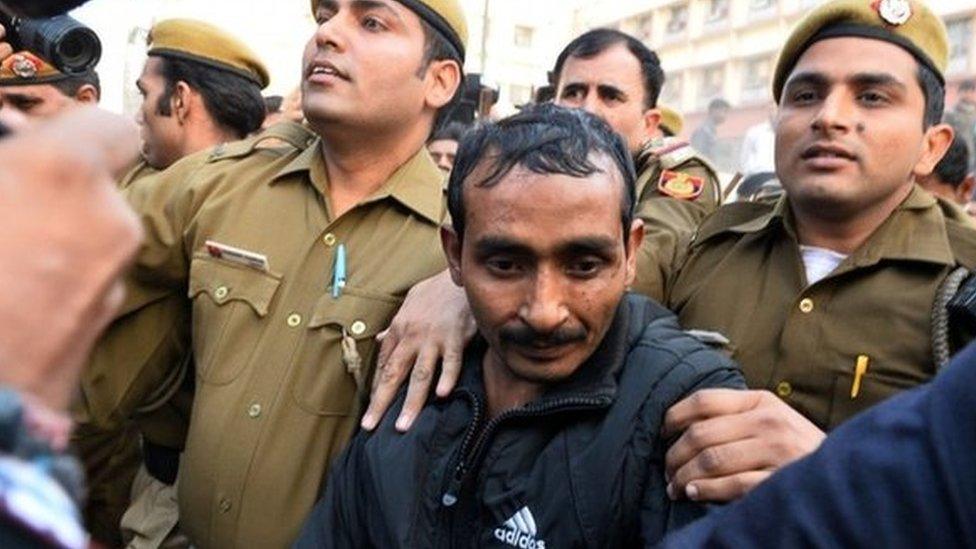Has India reached a turning point in tackling rape?
- Published
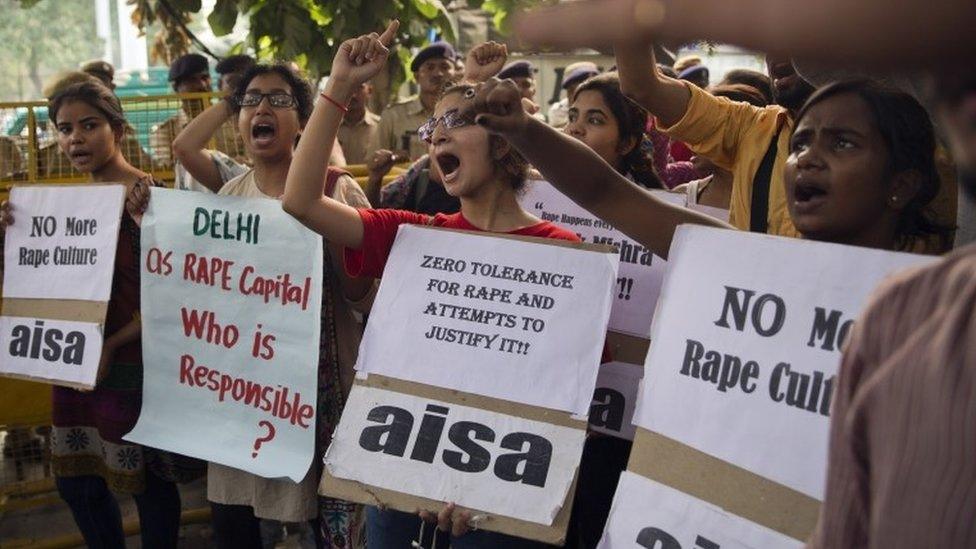
The recent cases of rapes have prompted public outpouring of anger and grief
Judging by the newspaper headlines, India is in the grip of a rape crisis.
In the past week there have been two appalling incidents of child abuse as well as news of the conviction of an Uber taxi driver for raping one of his passengers in Delhi last year.
There is no question that India - like many other countries - has a big problem with sexual abuse of women and children, but the country has actually passed a crucial turning point in terms of tackling the issue.
I'll admit that the statistics suggest the opposite. The official figures show the incidence of rape is actually increasing.
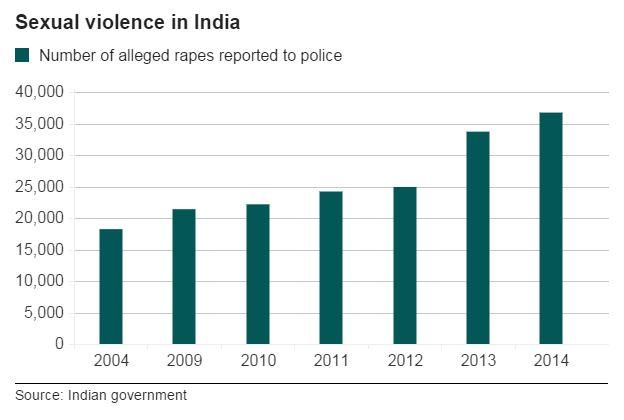
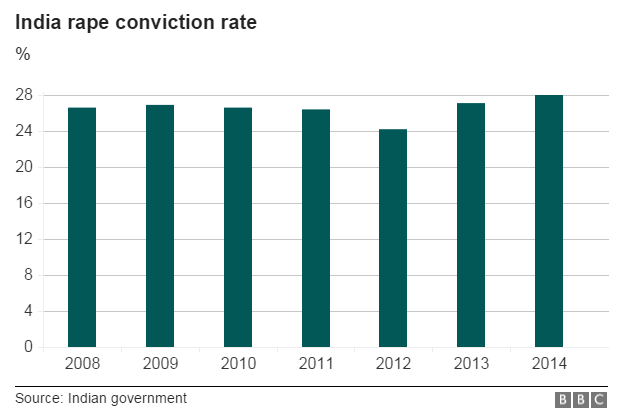
And the depressing truth is that the real incidence of rape is much higher than the official figures suggest.
But the growing number of rapes is actually an indicator that India is at last beginning to take serious steps to tackle the issue.
The police are one factor. They are now much more likely to record rape and sexual abuse when victims report it to them. The definition of rape has also been widened.
But the key factor is the growing willingness of victims to report rape in the first place.
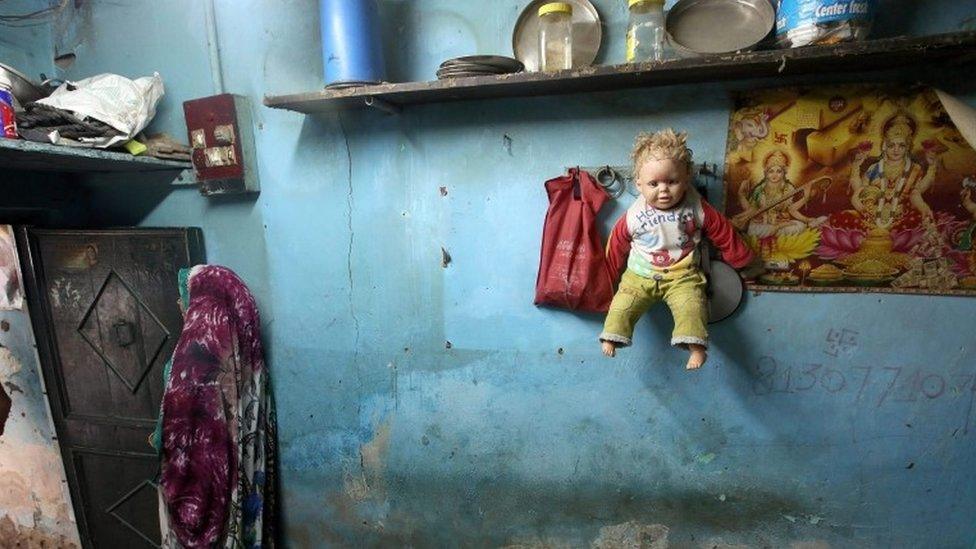
A four-year-old was raped in Delhi last week
There is still huge stigma attached to rape in India. As a result many rape victims are unwilling to say they've been attacked for fear of the shame it would bring them and their families.
Victims often find they are blamed for the crime rather than the perpetrators.
But campaigners say things are beginning to change and they can date the beginning of that process of change very precisely - to 16 December 2012.
That's the date of the infamous Delhi bus rape, when a 23-year-old medical student was gang-raped on a bus in the south of the city. She died of her injuries two weeks later.
In India the press are not allowed to publish the name of someone who has been the victim of rape so she became known as "Nirbhaya", meaning "fearless".
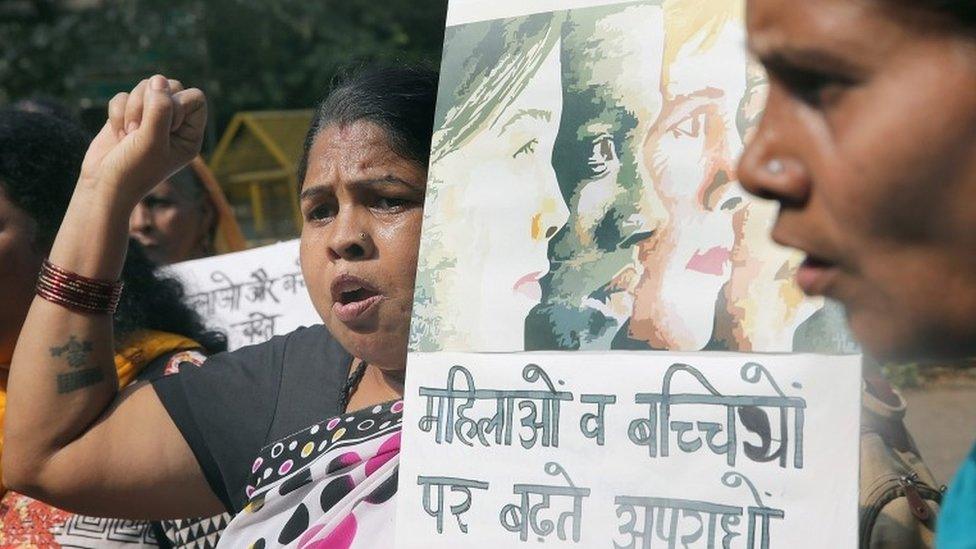
There have been public protests across India attacking the government for failing to provide adequate security for women and children
The rape of Nirbhaya prompted an extraordinary public outpouring of anger and grief. There were huge public protests across the country attacking the government for failing to provide adequate security for women. Some became violent.
Just as the revelations about Jimmy Saville caused a huge discussion about attitudes to child abuse in Britain, the Nirbhaya rape sparked a national discussion and soul-searching about attitudes to crimes against women.
And the headlines these recent cases have generated show that the debate continues.
That's not to say the problem is anywhere near being solved. The Delhi rape led to new laws on sexual assault but the government's decision earlier this year to ban India's Daughter, a BBC film about the incident, shows that India still has a long way to go.
Nevertheless, you can only begin to change once you acknowledge you have got a problem, and India has taken that crucial step.
- Published20 October 2015
